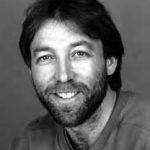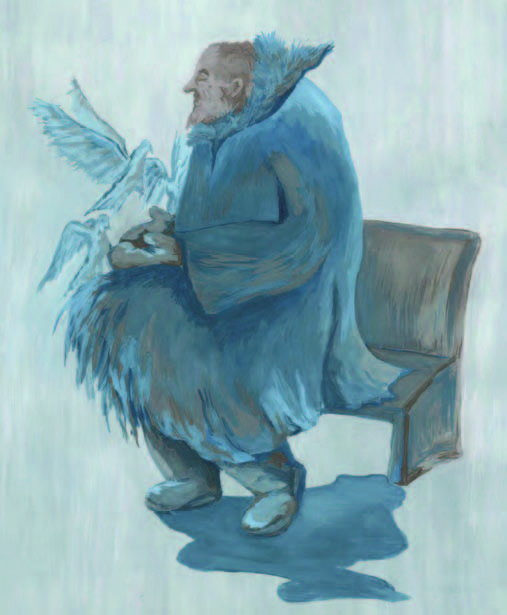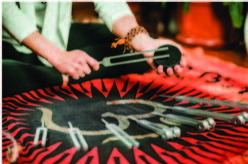Around eleven years ago, when I first started saying kaddish for my father using his own tefillin, an old shule friend of his noticed that the head part didn’t quite fit; the leather was too loose, and he adjusted it for me right there in the sanctuary.
But it wasn’t only the size of my dad’s head that was bigger than mine; it was the size of his brain too. My father was the smartest one in the room just about every time. On the off-occasion when he wasn’t, he was the first one to stand, to show respect, when a surgeon or a scholar or a rabbi walked in. If he was mind, body and spirit, as we all are, then I guess this was the spirit or heart part of him. I like to think of myself as taking after him in some essential ways. I know it’s a stretch for me to do this, that I’m flattering myself, but I like to do it anyway.
I published my first and only book, A Little Consideration, in 2011, just a year after dad died. I wish he had lived to see the book in print; he would have loved it. I can picture him carrying a few copies in his car so he could show it off and give it as gifts to relatives and friends. I’m now working on my second book, and this is its thirty-sixth story. It is entirely fitting that this writing – so much about him – should be the thirty-sixth. In Hebrew, the letter lamed equals thirty and the letter vov equals six. There is a legend in Judaism associated with that number known as the “Lamed Vov,” the “Thirty-Six.” It is written that, at every moment on this earth, there are thirty-six righteous individuals without whom the world would cease to exist.
Part of the beauty of the legend is that we never know who these people are while they’re alive; oftentimes, we later discover they were quiet, nondescript individuals. One of them could be the old lady who goes around town collecting bottles from people’s recycling bins. Another could be the guy who camps out along the fence by the train station. Whoever and wherever they are, if just one of them were missing, even for an instant, the world would immediately end; their goodness somehow counterbalances all the bad. When one dies, another is born. In this way, their number is maintained, and the world continues.
My father had an amazing voice, both talking and singing … but especially singing. All three of us sons have his speaking voice; but nobody can touch him in singing. Still, when I chant the old Chassidic melodies he taught me so well, I hear a little bit of him in me; he is alive again. There’s nothing like music to stimulate memory … except maybe smell. Certain smells also whisk me back: a roasted chicken on shabbat, a well done matzoh-brei on Passover. The nose and the ear are bridges to our past. To find anything that surpasses these, one must turn to fiction. In the Harry Potter books, the Pensieve is a stone basin into which one person’s memory is poured in order to be examined by a second person; it is an open window into the first person’s mind. But since I live in the real world and have no Pensieve here, I will continue to rely on music and smell to deepen my memory, to retrieve my yesterdays. I will continue to listen for my father’s voice in mine, to align myself, as much as possible, with harmony, with heart, with spirit.
Recently, I went to my local gas station to have a headlight bulb replaced. I had an eight o’clock appointment, pulled up at ten-to-eight, and was about to take out something to read when one of the mechanics came over and asked, “What’s up?” I told him about the headlight, but that I was in no hurry and could wait. He told me to open up the hood, took out the old bulb and went into the office to get a new one. When he got back, he was having trouble getting the new one in, so he decided to go back into the office to make sure the new one matched the old one. It did. Still, he couldn’t get it in properly. After about ten or fifteen minutes of fiddling with it, not wanting to give up, not wanting to disappoint me, another mechanic, who had just gotten to the station, walked over and took a look. Apparently, he was more experienced with a Prius and got the bulb in immediately. I figured the job would cost at least twenty dollars – especially since it took more time and manpower than I thought it would – and was pleasantly surprised when the first guy said, “Give me ten bucks.”
I paid, got back in the car, made the right onto Monroe Boulevard, and another right onto Park. Then, something made me pull into the island parking lot there and go to the bakery. I bought a nice coffee ring for eleven bucks and drove back to the station. As I got out of the car, the original mechanic saw me and ran over, thinking something was wrong with the headlight. When I handed him the cake, I thought I saw the welling of tears beginning in his eyes. He said I made his day. I said he made mine, pressed his arm affectionately, and left.
Maybe it was my father’s voice that made me pull into that parking lot and run into that bakery. He always went out of his way to show his appreciation to all kinds of people. I can’t count how many times I saw him deliver home-made gefilte fish to a client or a length of fabric to a bank teller. He added a personal touch to almost everything he did, and this not only made him a lot of money; it also made him very well-liked. People saw and felt that what he was doing was more than just business; he was making a connection with them. I could not watch my father interact with so many people for so many years without having some of his magic run off on me, without hearing his voice in almost everything I do.
Dumbledore, the most God-like person in Rowling’s universe, reminds us that it is “not our abilities that define us; it is the choices we make.” The rabbis teach us that God gave us free will so that we can feel the joy that comes from making good choices, from loving each other instead of hating each other. If we had no free will, we would just be puppets and God would just pull the strings. But that’s not the way it is. We choose what we do. We choose who we become. I’m glad I chose to show that mechanic my appreciation for his work, for the time and consideration he gave me. For all I know, he may be one of the Lamed-Vov. For all I know, tonight, in the privacy of his little, humble apartment, he may be sharing that coffee ring with God Himself.
 Richard Ehrlich is the author of A Little Consideration, a collection of seventy autobiographical vignettes, the first of which was written in 1991. The stories cover a wide range of topics, but their common denominator is the pursuit of Truth, of personal and societal growth. He is currently at work on his second book, to be entitled A Little More Consideration. Ehrlich retired from teaching at Great Neck South High School, on Long Island, NY in 2018. He lives with his wife, Liza, and their two sons, Jacob and Adam Email:
Richard Ehrlich is the author of A Little Consideration, a collection of seventy autobiographical vignettes, the first of which was written in 1991. The stories cover a wide range of topics, but their common denominator is the pursuit of Truth, of personal and societal growth. He is currently at work on his second book, to be entitled A Little More Consideration. Ehrlich retired from teaching at Great Neck South High School, on Long Island, NY in 2018. He lives with his wife, Liza, and their two sons, Jacob and Adam Email:
queequegrashi@yahoo.com.

















